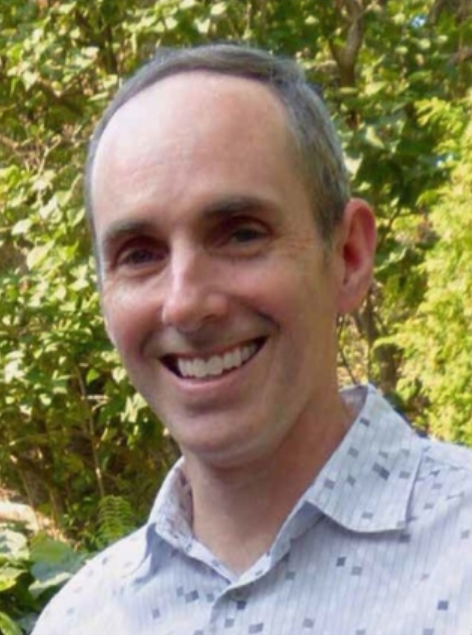John Hazel, P.Eng., wants to enable the next generation of engineers to see farther and achieve more
—
 Which of us has not been touched by someone who offered a leg up along our professional journey? Most people will remember at least one friendly face – a mentor, a colleague, or even a stranger – whose knowledge elevated them to see farther and achieve more. For a number of Ontario’s students and fledgling engineers, that face may very well belong to John Hazel.
Which of us has not been touched by someone who offered a leg up along our professional journey? Most people will remember at least one friendly face – a mentor, a colleague, or even a stranger – whose knowledge elevated them to see farther and achieve more. For a number of Ontario’s students and fledgling engineers, that face may very well belong to John Hazel.
Hazel received his Ontario engineering license in 1991, after completing a Bachelor of Engineering degree from Concordia in Montreal, and an MBA from the University of Ottawa. An electrical engineer, Hazel currently leads a team that provides network management engineering professional services at Nokia. His previous work focused on the design of hardware and software for telecom systems.
Q: What makes a good engineer?
—
A: In my view the best engineers are able to counter balance their technical skills with a longer term outlook. In seeking solutions, they need to anticipate often evolving outcomes and apply a broader, more holistic lens to those solutions and that requires a long term perspective.
Q: What inspired you to become a mentor?
—
A: What drives me is the knowledge that I can improve quality of life for people. Most engineers are attracted to the profession by the opportunity to leave a legacy, usually in the form of a solution to a problem that benefits many and endures…a bridge, building, water, electrical or computer system. Mentorship is another form of this, where you can pass on your learning – especially those lessons that are not captured in textbooks – to others to carry the work forward, hopefully with new insights and perspectives. In the words of Sir Isaac Newton in 1675: “If I have seen further it is by standing on the shoulders of giants.”
Q: Canada is in a global race for innovation. Given the high demand in Canada for technical experts, how do you see the future of the profession?
—
A: Globalization has no doubt had one of the greatest impacts on industry. Other emerging economies have recognized the value of operating on an international scale and have invested in their knowledge economy. Canada still needs to step up. While we’re on the ground in other nations, building airports in Saudi Arabia and supporting communities in African countries, all we are really doing right now is exporting our expertise. We need to reposition our engineering profession, more like Engineers Without Boarders, away from just being an export into something that can integrate into a larger engineering ecosystem.
We must do more to transform the role of tomorrow’s engineer, with a view towards greater social impact. We need to integrate into local projects with local engineers to ensure sustainable growth and development – and in the process learn from one another. But that requires a change in mindset and that’s where mentoring can contribute.
Q: How can mentoring support Canada’s leadership on the world stage?
—
A: I’m privileged to lead a 36-person team geographically distributed in Ottawa, India and Turkey. When these engineers come together they bring different perspectives to the table and the resulting problem solving is stronger and more sustainable. Through OSPE, we are helping foreign-trained engineers navigate the Canadian socioeconomic landscape and in the longer term helping them think differently as engineers.
It’s a two-way street because along with their expertise, they bring unique viewpoints that we can benefit from. For example, in the Middle East, the profession receives the highest honour, higher even than doctors and lawyers. While here in Canada, too many engineers end up working outside their profession – it’s a lost opportunity.
Q: What helped to define your perspective?
—
A: Early in my career, I was assigned a project to install a network in Tokyo, working with engineers on the customer side. We installed our components into the existing Japanese infrastructure. To my dismay, one of my parts wasn’t working. Together with my Japanese counterpart, we were tasked to fix it. Since we didn’t speak each other’s language, we used pictures and signs to ultimately solve the problem. Our shared focus on technology and problem solving helped us cut through the language barrier and resolve the issue.
Coming out of that experience, I learned that knowledge is valuable to finding solutions, but a sense of humility opens you up to personal growth and sometimes greater success. My goal became to help other engineers understand the value of augmenting their technical skill with flexible thinking.
The following piece was written by Jana Manolakos for the December 2018 issue of OSPE’s The Voice magazine. Read the full article here.





Leave a Comment